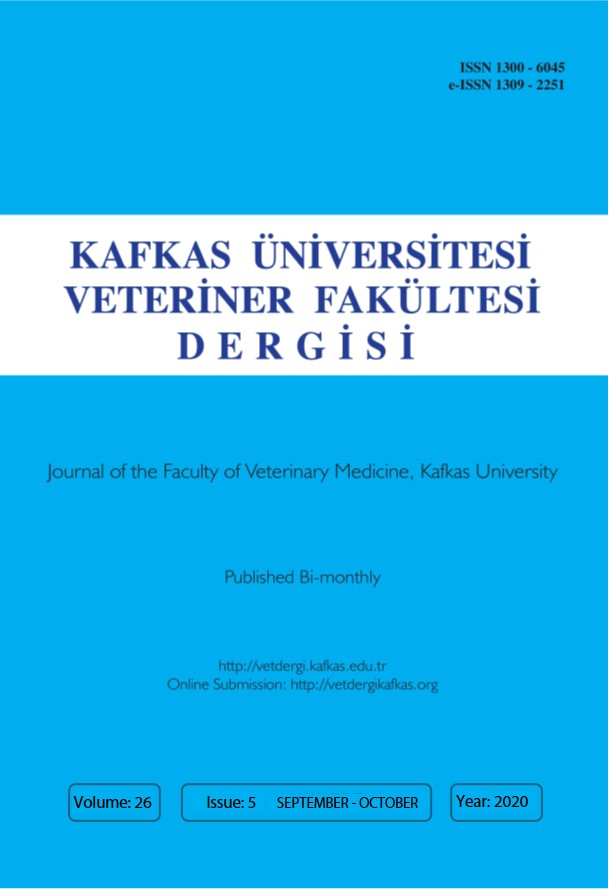
This journal is licensed under a Creative Commons Attribution-NonCommercial 4.0 International License
Kafkas Üniversitesi Veteriner Fakültesi Dergisi
2020 , Vol 26 , Issue 5
Protective Effects of Adenovirus-Mediated Overexpression of Heat Shock Protein 70 (HSP70) in Rat Liver Cells Against Oxidative Stress
1College of Animal Science and Veterinary Medicine, Heilongjiang Bayi Agricultural University, Daqing, CHINA
DOI :
10.9775/kvfd.2020.24079
This study was aimed to study the protective effects of Adenovirus-mediated overexpression of heat shock protein 70 (HSP70) in rat liver
cells against oxidative stress. Cultured Buffalo Rat Liver cells (BRL-3A) cells were divided into six groups. Groups SH and CH were transfected
with Ad-CMV-HSP70, groups SN and CN were transfected with Ad-CMV-Null, and groups SC and CC were treated under the same conditions
without adenovirus for 48 h. Groups SH, SN and SC were treated with 500 μM H2O2 for 3 h, and groups CH, CN and CC were treated under the
same conditions without H2O2. The following parameters were determined for cells of each group: proliferation rate, lactic dehydrogenase
(LDH) leakage rate, catalase (CAT), glutathione peroxidase (GSH-Px) and superoxide dismutase (SOD) enzyme activities, and glutathione
(GSH) and protein carbonyl contents. In addition, the HSP70 mRNA abundance and HSP70 protein expression levels were examined using
quantitative real-time PCR (qRT-PCR) and western blotting, respectively. The result shows that compared with cells of group SC, cells of group
SH had a higher proliferation rate (P<0.01), CAT activity (P<0.01), GSH content (P>0.05), SOD activity (P>0.05), and protein carbonyl content
(P<0.01), a lower LDH leakage rate (P<0.01) and GSH-Px activity (P≤0.05), and higher HSP70 mRNA abundance (P<0.01) and HSP70 protein
expression level (P<0.01). In summary, Adenovirus-mediated overexpression of HSP70 has certain protective effects on rat liver cells against
H2O2-induced oxidative stress.
Keywords :
HSP70, BRL-3A, Oxidative stress, Adenovirus vector, Cold stress










